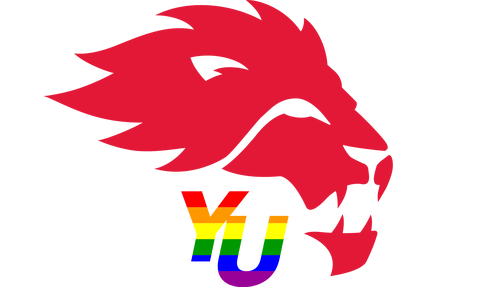It’s no surprise that queer identifying athletes have a different experience in sports compared to others. In university and college settings, queer identifying athletes are exposed to different levels of stereotyping through forms of toxic masculinity and homophobia.
Toxic masculinity is a very prevalent topic in the world of sports, which can lead to challenging situations and feelings for LGBTQ+ athletes. For queer identifying male and non-binary athletes, toxic masculinity brings challenging acts of stereotyping and expectations that may make it uncomfortable to be who one truly feels. The same goes for queer identifying female athletes.
When asked about his experience with toxic masculinity in the world of athletics, Dan Everton, a third-year biochemistry major and athlete on the York men’s volleyball team, says toxic masculinity is especially dominant and problematic in university athletics..
“Toxic masculinity is everywhere. I know for a fact that males, including those from the queer community, have to do a better job of learning and understanding what toxic masculinity is, who it effects, why it is a problem, and how to help stop it. Everyone within York athletics can and needs to do a better job at this,” says Everton.
“Toxic masculinity is everywhere. I know for a fact that males, including those from the queer community, have to do a better job of learning and understanding what toxic masculinity is, who it effects, why it is a problem, and how to help stop it…”
Toxic masculinity not only affects queer identifying males but also female athletes, and fourth-year disaster and emergency management major and field hockey athlete Jaslan Stirling can speak to this experience.
“I definitely have experienced toxic masculinity through social gathering and how women who differ from what is socially acceptable are instantly looked at differently,” Stirling says on the sexualisation and feminine differences that are often stereotyped in terms of queer-identifying females.
Everton also comments on his stereotyping/homophobic experiences as an athlete, particularly by not playing “the part” of the idea others may have on a “typical gay.”
“There has been cases where heterosexual/straight guys will act out what they perceive as the ‘stereotypical gay’ is as a joke and think it is funny, or not fitting the ‘criteria’ of what they presume queer to ‘look like,’” Everton says.
In terms of athletics supporting and representing the LGBTQ+ community, Everton believes athletics supports their queer identifying athletes. Though they require more consistency within their representations, the importance of this topic has been ignored for too long.
“As a part of the Sport Council Executive Committee (SCEC), we are working on making our supporting and representation efforts better,” Everton says. “In fact, we are claiming November as our pride month and will be releasing a ton of educational information on the queer community, including topics like understanding various terms, importance of respecting personal gender pronouns, and how to be an ally.”




